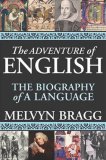Summary | Excerpt | Reviews | Beyond the Book | Readalikes | Genres & Themes | Author Bio

Critics' Opinion:
Readers' Opinion:
First Published:
Sep 2004, 336 pages
Paperback:
Sep 2006, 336 pages
 Book Reviewed by:
Book Reviewed by:
BookBrowse Review Team
Buy This Book
He realised that guerrilla warfare would never be enough. To defeat the Danes he had to bring them to open battle. His army had been scattered and many had been slaughtered. But they were not wiped out. In the spring of 878, Alfred sent out a loyalty call to the men of the shire fyrds— the county armies, the basis of the great county regiments. About four thousand men joined him, mainly from Wiltshire and Somerset. We are told they were armed only with shields, battleaxes and throwing spears.
They mustered at Egbert's Stone, where trackways and ridgeways met. Two days later they advanced against the Danish army of about five thousand men, who had positioned themselves brilliantly on high ground at Ethandune (Edington, in Wiltshire) on the western edge of Salisbury Plain. Drumming their shields and led from the front by the young king, they stormed the heights. Contemporary accounts tell us that what followed was a rout, a slaughter of the Danes. Modern historians question that, but there is no doubt that Alfred and his men prevailed. His crown and his kingdom were repossessed. The Danes surrendered. Their leader Guthrum was baptised as a Christian, with Alfred in conciliatory attendance. A great white horse was carved into a Wiltshire hillside to commemorate the victory— undoubtedly a key victory for an emerging England and a crucial victory for English. Alfred had saved the language.
It is worth spending a few sentences on what might have been. The Danes were fierce and conquering tribes and had they occupied the whole of the land it is very likely that the final tongue would have come out of their dialects and not the "English" dialects. Would that have mattered? Very likely, yes, I think. Their written records were meagre compared with the traditions already well established in the rich lands they had all but overrun. Their basic attitude to written language was to burn it or, more helpfully for the future, toss it aside. And though their version of a Germanic dialect might over time have dug in, it would have taken centuries and who knows whether it would have held English's vital combination of deep obstinacy and, when faced with real extinction, astonishing flexibility and that vital survival technique, the power to absorb.
What happened to English after the Battle of Ethandune was that it not only endured, it thrived, it grew. Having held steady under fire, it moved forward. The two principal reasons for this were Alfred himself and what seems to me to be the profoundly self-preserving nature of the language which had so slowly and doggedly alchemised into English.
Sometimes I think that it is a pity that the Victorians dubbed Alfred "The Great." It makes rather a nursery hero of him. He was much better than that. This is not the place to describe the full range of his achievements, but with regard to English his contribution was unique.
The Danes had been defeated but they were a persistent enemy. They would and they did come back again and again. Alfred had won a victory but the war was not over. He knew that the kingdom and tribes he now commanded were still wounded from the defeats they had suffered. They needed to feel safe, they needed to feel protected, they needed to feel part of a winning side. Alfred's use of the English language united them. He was the first but by no means the last to see that loyalty and strength could come through an appeal to a shared language. He saw that inside the language itself, in the words of the day, there lay a community of history and continuity which could be invoked. He set out to teach the English English and make them proud of it, gather around it, be prepared to fight for it.
He recognised that the Danes would not accept subjugation, nor did he have the manpower to enforce it. So he drew a line diagonally across the country from the Thames to the old Roman road of Watling Street. The land to the north and east would be known as the Danelaw and would be under Danish rule. The land to the south and west would be under West Saxon, becoming the core of the new England. This was no cosmetic exercise. No one was allowed to cross the line, save for one purpose— trade. This act of commercial realism would more radically change the structure of the English language than anything before or since. Trade refined the language and made it more flexible.
From Chapter 2 of The Adventure of English by Melvyn Bragg, pages 16-28. Copyright Melvyn Bragg 2003. All rights reserved. Reproduced by permission of the publisher, Arcade Publishing Inc. No part of this book may be reproduced without written permission from the publisher.





The House on Biscayne Bay
by Chanel Cleeton
As death stalks a gothic mansion in Miami, the lives of two women intertwine as the past and present collide.

The Flower Sisters
by Michelle Collins Anderson
From the new Fannie Flagg of the Ozarks, a richly-woven story of family, forgiveness, and reinvention.

The Funeral Cryer by Wenyan Lu
Debut novelist Wenyan Lu brings us this witty yet profound story about one woman's midlife reawakening in contemporary rural China.
Your guide toexceptional books
BookBrowse seeks out and recommends the best in contemporary fiction and nonfiction—books that not only engage and entertain but also deepen our understanding of ourselves and the world around us.